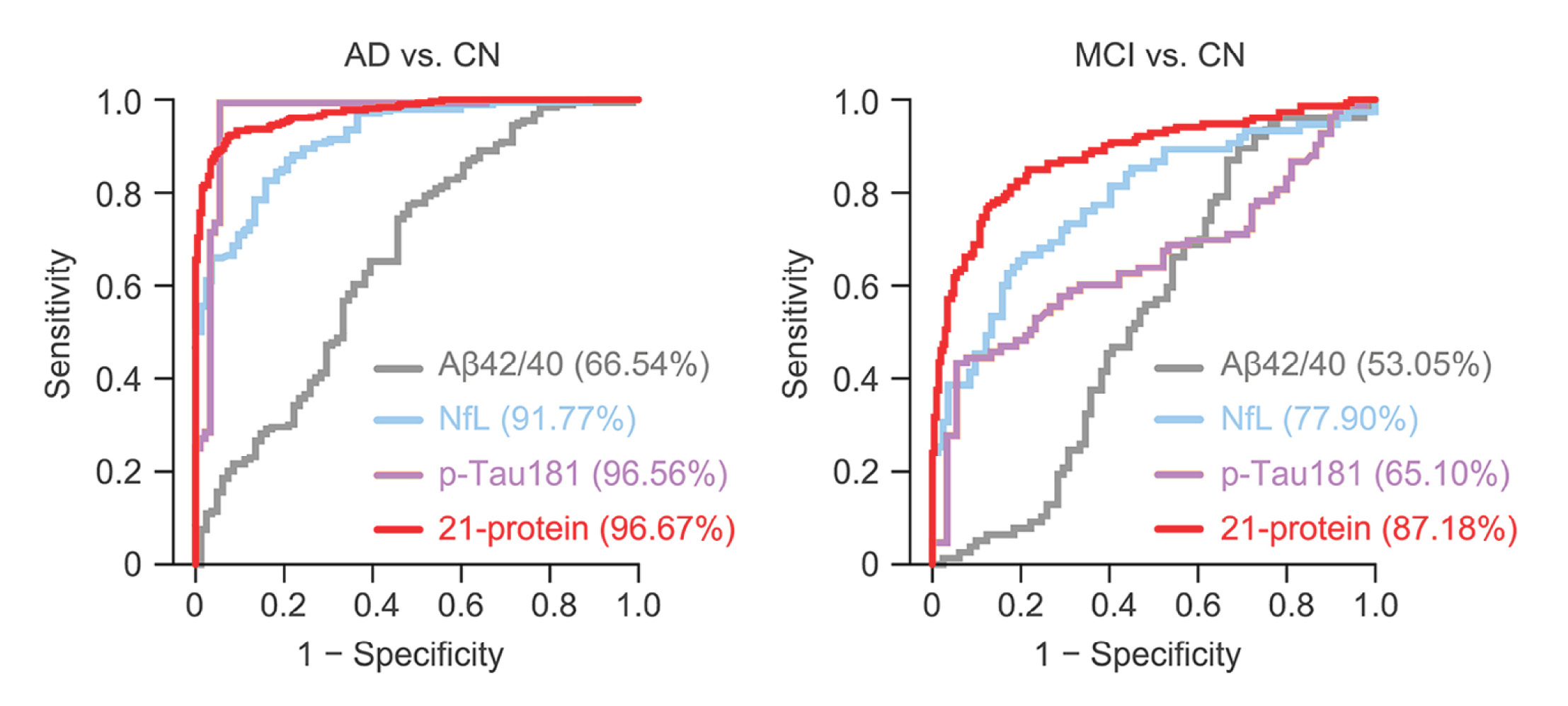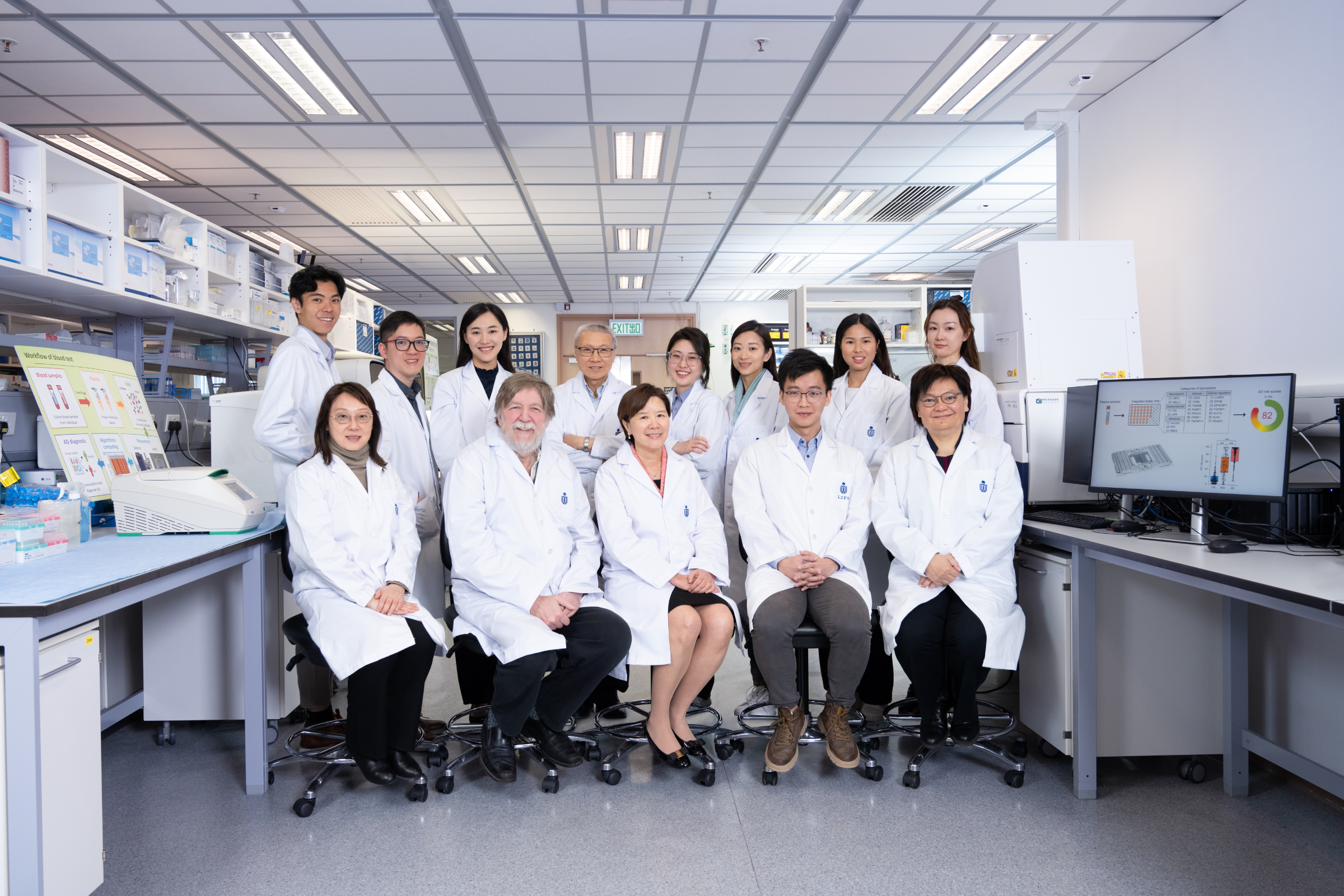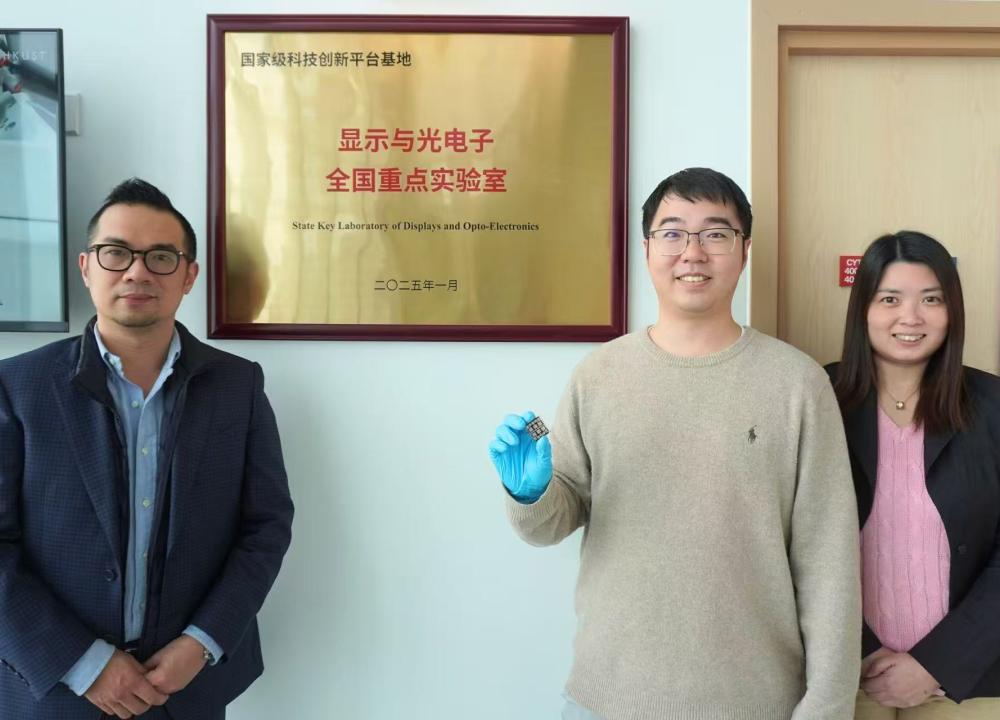HKUST Neuroscientists Develop Highly Accurate Universal Diagnostic Blood Test for Alzheimer’s Disease and Mild Cognitive Impairment
An HKUST-led international research collaboration has achieved a significant milestone in Alzheimer’s disease (AD) diagnosis and management. The team, spearheaded by Prof. Nancy IP, President and the Morningside Professor of Life Science at the Hong Kong University of Science and Technology (HKUST), and Director of the Hong Kong Center for Neurodegenerative Diseases (HKCeND), has developed a cutting-edge blood test for the early detection of AD and mild cognitive impairment (MCI), surpassing remarkable accuracy rates of over 96% and 87% respectively. Notably, this blood test is applicable across ethnic populations, providing a global solution to the diagnosis and management of AD.
At a glance:
- Remarkably high accuracy rate – over 96% for AD and 87% for MCI;
- Applicable across diverse ethnic populations, including Chinese and European;
- Enables early detection of AD and subsequent progression;
- Captures multiple AD-associated biological pathways;
- A game-changer for AD diagnosis and precision treatment
AD affects over 50 million people worldwide. A major hallmark of the disease is the accumulation of toxic amyloid beta (Aβ) in the brain, leading to the dysfunction and loss of brain cells, resulting in progressive memory loss, cognitive decline, and difficulties in daily tasks and communication. The recent approval of the AD drug Lecanemab offers new hope by targeting MCI or mild AD-related dementia with elevated Aβ in the brain. However, the majority of individuals with these conditions are undiagnosed and untreated, largely due to the challenges in making an early diagnosis. Currently, elevated Aβ can only be measured through costly brain imaging or invasive procedures. Additionally, disease diagnosis heavily relies on clinical observation of symptoms that typically appear 10-20 years after disease onset, by which time the disease has progressed to an advanced stage and is difficult to treat. Therefore, the development of a simple blood test that accurately identifies individuals with MCI and mild AD, while also detecting elevated Aβ in the brain, would be a game-changer for AD diagnosis and treatment strategies.
Prof. Nancy IP and her team at HKUST have recently developed a blood test for the early detection of AD and MCI with exceptionally high accuracy. In a multinational study involving individuals of Chinese and European descent, the international research team demonstrated the robust performance of the blood test in distinguishing individuals with AD and MCI from cognitively normal people, as well as its ability to detect brain amyloid pathology. These findings also highlight the applicability of the test across diverse ethnic and regional boundaries, showcasing its potential for global impact.
Furthermore, unlike existing blood assays that mainly focus on a single biomarker analysis to reveal brain pathology, the HKUST-developed blood test simultaneously measures the levels of 21 proteins (as shown in the graphic below), thus revealing the alterations in multiple crucial biological pathways, and achieving more accurate classification of AD and MCI as well as close monitoring of disease progression. This comprehensive AD profile for each individual opens the door for the future development of tailored treatment approaches for individual patients, known as precision medicine, which can revolutionize the field of AD diagnosis and management.


"Our blood test heralds a new era of simple, effective, and less invasive diagnostics, and by expanding the scope of our research to include diverse populations, we have taken a crucial step towards making our test a universally applicable tool for AD diagnosis," remarked Prof. IP. "Our test can also be used to screen suitable individuals for specific drug treatments in clinical studies, and closely monitor disease progression and drug responses. In the future, it may also facilitate the development of personalized treatments, by shedding light on the molecular underpinnings of AD that vary from person to person and between ethnicities."
The research was conducted in collaboration with researchers at University College London (London, UK) and the Barcelonaβeta Brain Research Center (Barcelona, Spain), as well as clinicians from local and overseas hospitals including the Prince of Wales Hospital (Hong Kong) and the Hospital del Mar (Barcelona, Spain).
The work was recently published in Alzheimer’s & Dementia: The Journal of the Alzheimer’s Association (https://alz-journals.onlinelibrary.wiley.com/doi/full/10.1002/alz.13676) and has been licensed to a start-up company of HKUST, Cognitact Limited, to provide testing services to the public.
About The Hong Kong University of Science and Technology
The Hong Kong University of Science and Technology (HKUST) (https://hkust.edu.hk/) is a world-class research intensive university that focuses on science, engineering and business as well as humanities and social science. HKUST offers an international campus, and a holistic and interdisciplinary pedagogy to nurture well-rounded graduates with global vision, a strong entrepreneurial spirit and innovative thinking. Over 80% of our research work were rated “Internationally excellent” or “world leading” in the Research Assessment Exercise 2020 of Hong Kong’s University Grants Committee. We were ranked 2nd in Times Higher Education’s Young University Rankings 2023, and our graduates were ranked 29th worldwide and among the best from universities from Asia in Global Employability University Ranking 2023. As of September 2023, HKUST members have founded 1,747 active start-ups, including 9 Unicorns and 13 exits (IPO or M&A), generating economic impact worth over HK$ 400 billion. InvestHK cited QS World University Rankings by Subject 2021 to demonstrate the performance of five world’s top 100 local universities in several innovation-centric areas, among which HKUST ranked top in four engineering and materials science subjects.












